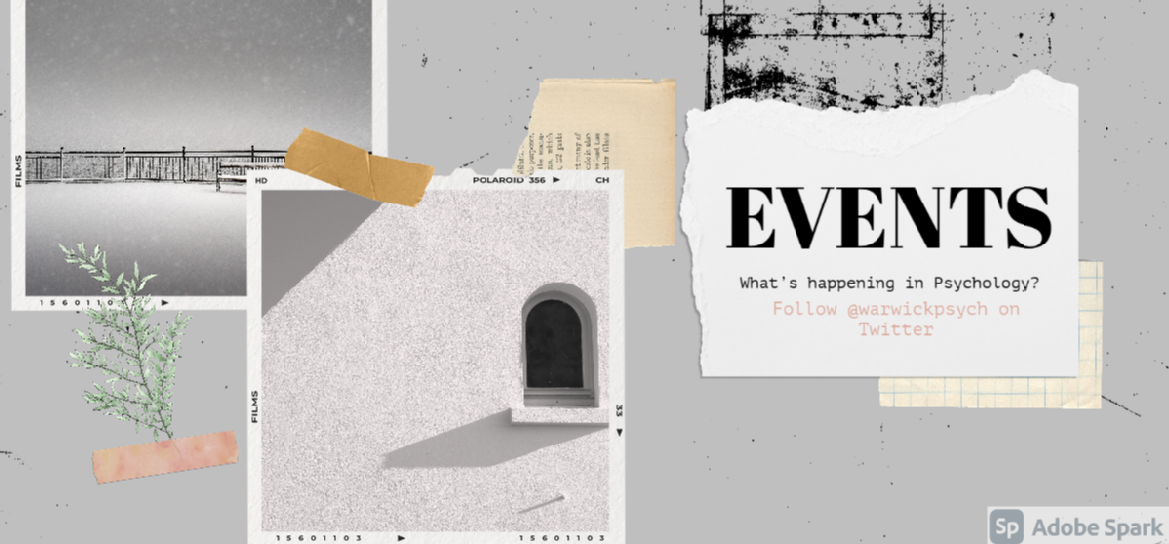Calendar of events

Wednesday, November 10, 2021
-Export as iCalendar |
PhD Research Development Autumn ProgrammeRuns from Tuesday, October 05 to Friday, December 10. |
-Export as iCalendar |
Internal Seminar: Charlie Pilgrim and Simon MyersSimon Myers - Reacting to Wrong Doers - Strategies for Social Partner Management We explore two types of behavioural strategy that individuals use to manage their social partners in response to undesirable behaviour. These strategies are Partner Control - rewarding and punishing behaviour, and Partner Choice - selecting preferred social partners and avoiding the others. Past work has shown that Partner Control and Partner Choice are functionally distinct but this research has not investigated whether people use different strategies to address different types of undesirable behaviour. In particular, we focus on violations of the different moral foundations of harm and purity. Using a selection of harm and purity vignettes, across two preregistered studies, we test how different violations result in a preference for one strategy over the other, based on the signals people infer from these actions, while exploring the role of theoretically relevant demographic measures (political orientation, relational mobility, urban vs rural residence). We find that harm violations are more likely to lead to Partner Control and purity violations are more likely to lead to Partner Choice, particularly when purity violations give strong character-based signals. By appealing to these contrasting strategies, we propose a functional account of why people differ in their sensitivity to moral purity, especially victimless wrongs. We theorise that these individual differences may be explained by the tightness of social groups and how much opportunity they provide for Partner Choice. Charlie Pilgrim - : "Information Foraging in the Attention Economy Drives the Rising Entropy of English" Abstract: Over the past 200 years there have been continual advances in communications technology, characterised by increasing ease of access to ever more abundant sources of information. In the face of this abundance, people choose which information to consume and which to ignore. Media producers need attention to survive and so must adapt to this selective pressure, creating a feedback process of co-evolution similar to that seen in many ecosystems. Here, we explore a model that describes this dynamic, and show how the model outcomes agree with empirical evidence of rising word entropy in English. TEAMS link and calendar invitation circulated by Internal Seminar co-ordinator, Dr Jesse Preston, the week of the seminar. |
-Export as iCalendar |
Academic Promotion WIE Workshop for Reader/ProfessorOnlineWarwick Institute of Engagement have a Learning Circle dedicated to supporting the promotions process with specific reference to impact, outreach and engagement. This workshop is designed to inform and support those applying for promotion (or thinking of applying) to Reader or Professor. There will be presentations from staff recently promoted, some advice on framing applications and plenty of time for questions and answers. This WIE workshop will focus on the impact, outreach and engagement criteria which is often one of the most difficult sections to write but have also joined up with WIHEA who are running a separate session on the Reader/Professor promotions process more broadly, directly after this session. To join their workshop please see here. |
